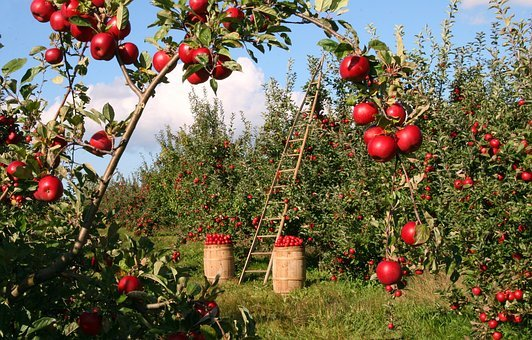One of the most important yet underrated activities is farming. The irony when it’s the sole thing the product of which allows us to live. Farming is one of the most insightful and necessary processes of all.
Farmers farm for the love of farming. They love to watch and nurture the growth of plants. There are a plethora of challenges that one faces while farming. Here are a few tips that every newbie farmer must follow for a successful farming experience.
Know the crop
This is the most basic information that you require. You should know your crop best, the type of seeds, and the kind of care they need. The work doesn’t finish at planting the seeds. Understand the kind of crops you are dealing with, and assess the yield potential. When setting expectations about your field’s crop yield, tools like this bushels per acre calculator can be a great asset. This will help you set realistic goals and get the most out of your field.
Test Your Soil
This is one of the most important steps. This should be something you start your farming with. The soil directly influences the growth of your crops, examining the Phosphorus potassium and the fertilization levels will give you an insight into how to handle your crops. It will also provide you with the proper soil conditions with optimal density and the right amount of nutrients to help you start your plantation.
Plant early for effective production
Timing is always important. Choosing the right time is very necessary for planting.
If you have your soil ready you may as well start planting. It’s a known fact that planting early can lead to increased yields. Choose the kind of seeds you want to sow and get started as soon as your soil is ready.
Practice Soil Rotation
Planting recurring crops can affect the overall production and yield. If your soil condition is strong enough, you might as well choose to plant them consecutively, but if it isn’t strong then it might produce less than the optimal yield.
You should consider planting alternative crops, season-by-season, as it helps the crops to diversify the demands on your soil. This way you can expect to continually produce throughout seasons and years.
Scouting Your Fields
Know your field well. If you wish to enhance the crop yield then you must scout the field time and again. It will provide you the right information on your soil conditions, the growth of weeds, and the growth of your crops. Examining your crops now and then. Is an important step for a better yield.
Proper Water Drainage
Water management is very essential for the crops for their survival and maximizing the yield of your crop. Make sure you water the plant just right, not less and not more. Overwatering your plant might take away the proper nourishment that the crop otherwise requires.
Make a drainage system in your crops that can prevent waterlogging as well as salinization of your soil, both of which can stifle growth as well as production.
Utilize Fertilizers
Fertilizers help in maintaining optimal soil conditions for the crops on the farmland.
Fertilizing your crops at the time of seeding can help provide the crops with the right amount of nutrients such as calcium phosphorus and potassium. It facilitates growth and so your corn can thrive and enhance productivity.
Weed-ing
Weeds are the worst enemy when it comes to farming. They are invasive and siphon away all the nutrients from the growing crops. They compromise your land which makes it hard to grow your crops. Scouting your fields regularly as well as using weed killers will help you get rid of the weeds before they get out of hand.
Seed Quality
The quality always matters. Having high-quality seeds is the sole basis for increasing crop yields. Be it to increase the crop yields or maximizing the agricultural productivity as a whole.
You can choose to have hybrid seeds as they are naturally inclined to grow stronger, faster, and with great efficiency that can be pivotal to the success of your crops. Non-GMO seeds combine sustainability and cost seamlessly accounting for both qualities as well as cost.
Conclusion:
Farming is all about learning new things. In order to increase your productivity, you can always try your hand at multiple techniques for enhanced production and yield. These tips may help you get into practice, but it’s up to you to explore more for better and improving results.















